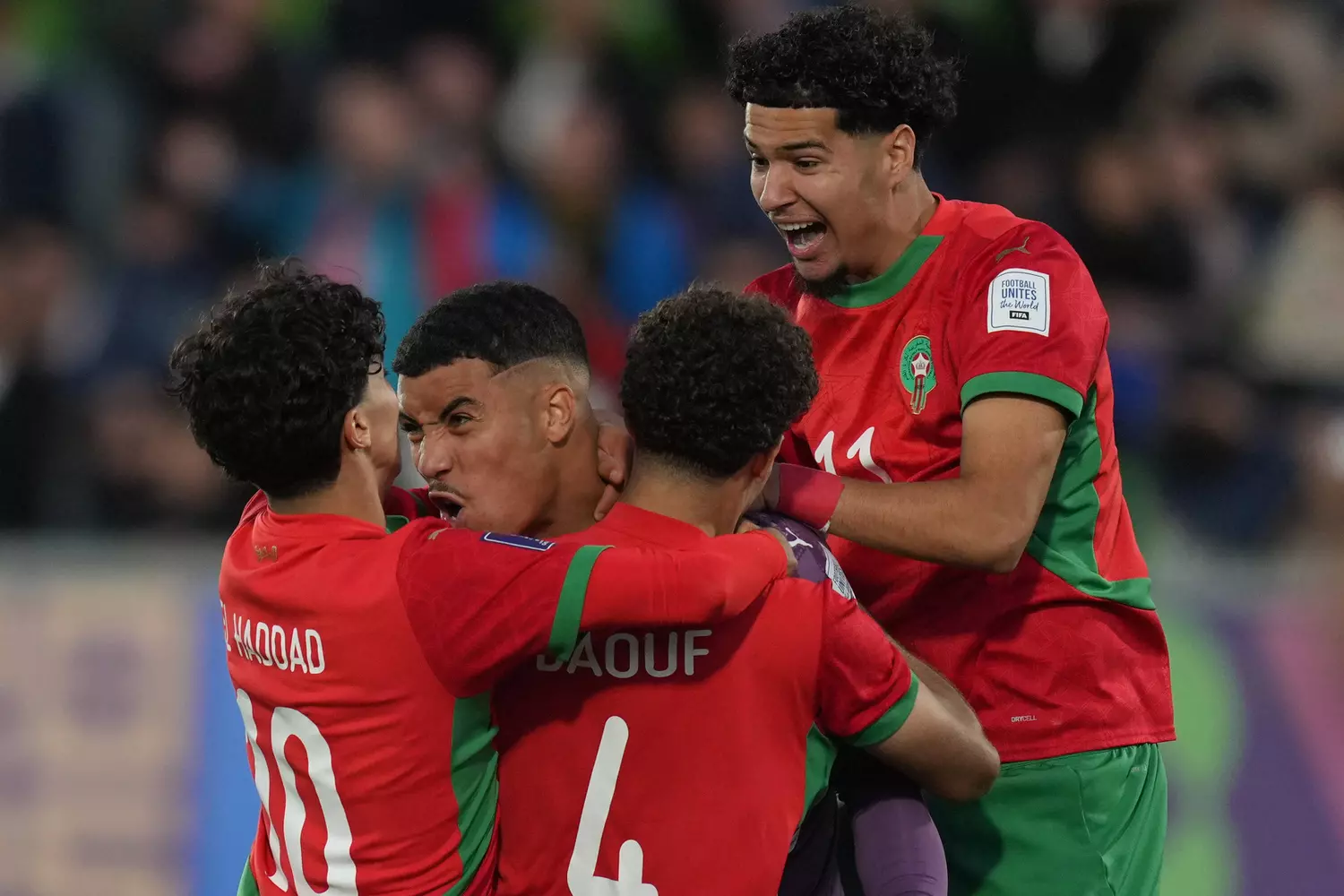The day after Morocco’s historic 2-0 victory over Argentina in the U20 World Cup final in Chile, the reaction from the Argentine press has been strikingly unanimous: Morocco dominated—and deservedly so. For the first time in its history, Morocco claimed the U20 world title with a performance marked by precision, power, and tactical brilliance. The Argentine media, rather than lamenting the loss, praised the North African side’s organization, intensity, and intelligence on the field.
Argentina’s leading newspaper Clarin described the final as nothing short of a masterclass, calling Morocco “a pure and decisive African tornado” that dismantled the Argentine squad from the opening whistle. The paper highlighted the clinical finishing of Yassir Zabiri, who netted both goals, and noted how Morocco never allowed their opponents to settle, dictating the pace with relentless pressure.
La Nacion echoed that sentiment, calling the defeat “painful but full of lessons” for Diego Placente’s young squad. The daily pointed to Argentina’s struggles to anticipate Morocco’s moves, describing the North African team as “fast, well-organized, and ruthlessly efficient,” able to exploit every defensive weakness with surgical precision.
Ambito, a prominent economic paper, emphasized Morocco’s tactical superiority. Despite Argentina enjoying more possession, Morocco held control throughout, with poise and composure. The outlet didn’t mince words, calling the win “historic” not just for Morocco, but for African football as a whole.
Pagina 12 focused on individual brilliance, devoting its editorial to Othmane Maamma, dubbed “the red arrow.” The piece painted him as uncontainable, a key figure in a team praised for its discipline and strategic cohesion. His speed and decisiveness epitomized a squad that looked prepared in every detail.
The country’s top sports daily, Olé, struck a more direct tone, summarizing the match in three words: “It was deserved.” It pointed to the “fatal 29 minutes” when Morocco effectively sealed the match, describing the win as the product of long-term planning and vision. “Morocco didn’t just win the game—they won the battle of ideas,” the article concluded.
Across all these publications, the sentiment is the same: Morocco’s triumph didn’t come out of nowhere. It’s the result of a deliberate, methodical national project. From Clarin to Pagina 12, each outlet acknowledged the strategic reforms spearheaded by King Mohammed VI, carried out by the Royal Moroccan Football Federation over the past several years.
The recognition extended beyond Argentina. At the World Football Summit in Madrid, Portuguese journalist Pedro Pinto called the victory a watershed moment for global football. He emphasized that Morocco is now reaping the benefits of deep investment in infrastructure, coaching, and governance—initiatives that began years ago and are now paying off on the world stage.
In Spain, AS highlighted the key role of the Mohammed VI Football Academy, calling it “the true engine behind Morocco’s success.” The Spanish outlet noted that this latest title is part of a broader trend, following a U23 continental championship, an Olympic bronze in Paris 2024, and a World Cup semifinal finish in Qatar 2022.
French newspaper L’Équipe echoed the praise, underlining Morocco’s consistent performance across all youth levels. The paper described the Mohammed VI Academy as “one of the best in the world,” not just for its results, but for the quality of its player development system.
To the international press, Morocco’s win isn’t seen as a surprise, but rather as the culmination of years of focused investment and long-term thinking. With less than a year until the 2025 Africa Cup of Nations and with the 2030 World Cup on the horizon, Morocco is now widely regarded as a global leader in football development—especially in the youth sector.
